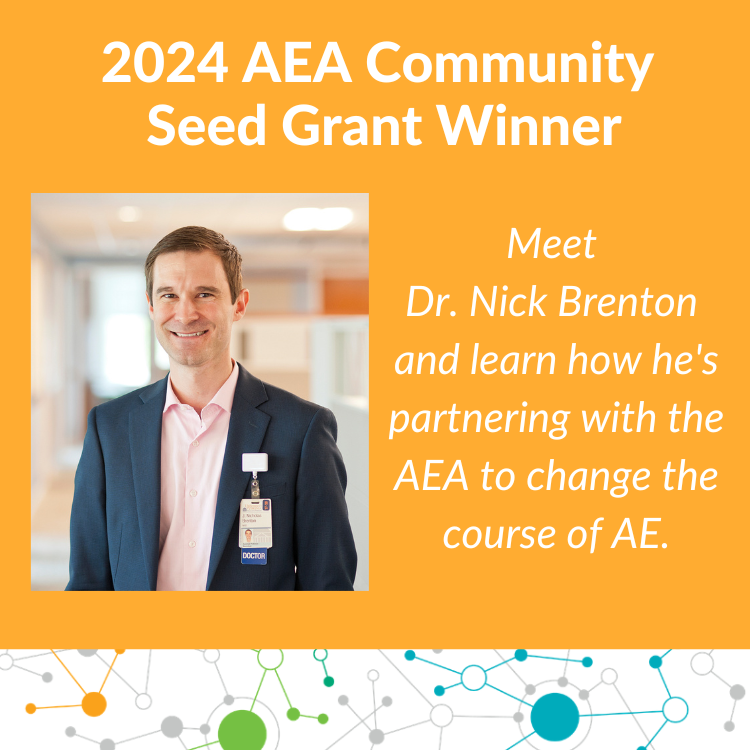Meet Dr. Nick Brenton
August 8, 2024

Dr. J. Nicholas Brenton (The Rector and Visitors of the University of Virginia, Charlottesville, VA, USA) was awarded a 2024 AEA Community Seed Grant for the investigation of Capacity, Endurance, and Physical Activity in Children with MOG+ Encephalitis. Learn more about his research and how it impacts those affected with autoimmune encephalitis. The start date for the award is September 1, 2024.
You have been awarded an AEA Community Seed Grant, can you tell us more about the study you plan to do?
First, my team and I would like to thank the AE Alliance and the community members who donate to make this grant program possible!
The majority of children with encephalitis associated with antibodies to MOG (MOGAD-AE) require admission to the intensive care unit and acute administration of immunotherapy. Despite favorable recovery in many of these children, neurocognitive impairments are often evident. Further, parents frequently raise concern about limitations and reduced participation in physical activities following MOGAD-AE due a variety of issues, including residual pain, fatigue, and impaired endurance.
The chronic impact of MOGAD-AE on physical capacity, endurance, and real-world activity levels in children is unknown. Our study aims to quantify walking capacity/endurance and real-world walking behavior (via continuous accelerometry) in pediatric MOGAD patients with a history of encephalitis (MOGAD-AE) versus pediatric MOGAD patients with a non-encephalitis phenotype (MOGAD-nonAE) versus matched controls. We will also identify clinical factors (disease phenotype, extent of brain/spine involvement, BMI, residual fatigue, pain) that may contribute to identified impairments in walking capacity and/or behavior.
How will your study help patients and families affected by AE?
Numerous studies have focused on the diagnosis, treatment and outcomes of adults and children with MOG antibody-associated disease (MOGAD). A paucity of studies has focused on outcomes of children with the MOGAD-autoimmune encephalitis (AE) phenotype. MOGAD-AE has the capacity to result in widespread CNS demyelination and while outcomes are generally favorable, these children frequently have parental-noted reductions in physical activity levels following the clinical recovery.
The findings of our study will provide first-ever quantification of these potential physical impairments (if present) and will also seek to identify clinically-relevant factors that contribute and are amenable to intervention. If successful, this study will set the stage for next-step intervention studies to improve physical activity, endurance, and ultimately quality of life in children with MOGAD-AE.
Tell us more about yourself and your affiliation?
I am a pediatric neurologist at the University of Virginia (UVA) in Charlottesville, VA, USA. I specialize in the diagnosis and treatment of neuroimmunological disorders in children. I created and currently direct the UVA Pediatric Neuroimmunology Clinic and perform collaborative clinical research within the field. My research has primarily focused on environmental influences on the risk for and course of pediatric demyelinating disorders and autoimmune encephalitis. I also study outcome metrics that quantify and predict neurological disability in children with both monophasic and relapsing neuro-immune conditions.
Thank you to the entire AE Alliance community for the commitment to changing the course of AE. Thank you to the researchers applying for the AEA Edward Arditte Community Seed Grant program and to the AE Alliance community, friends and family members for donating to the AEA Research Network. It is your donations that allow us to fund research focused on improving the lives of people living with AE.
Together, we are changing the course of AE.